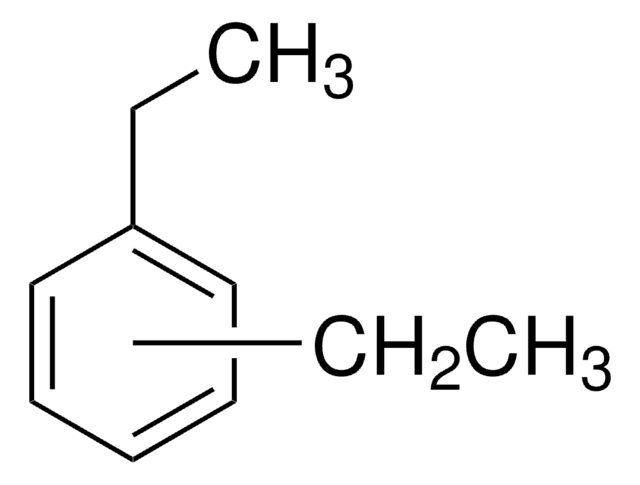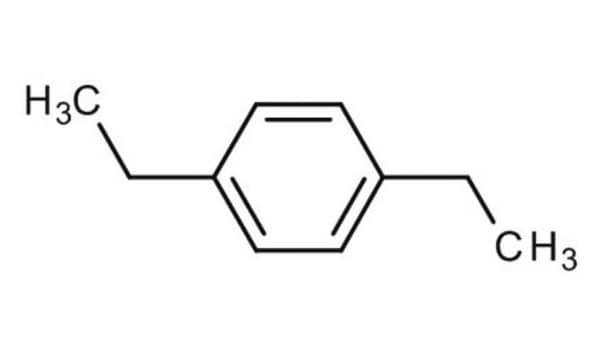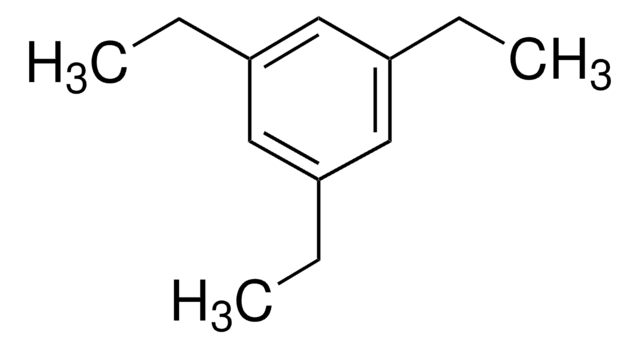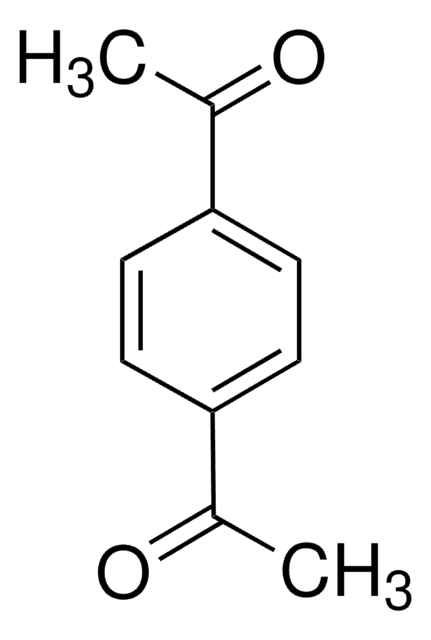D91004
1,4-Diethylbenzene
≥98%
About This Item
Produits recommandés
Densité de vapeur
>1 (vs air)
Niveau de qualité
Pression de vapeur
0.99 mmHg ( 20 °C)
Pureté
≥98%
Forme
liquid
Température d'inflammation spontanée
806 °F
Indice de réfraction
n20/D 1.495 (lit.)
Point d'ébullition
184 °C (lit.)
Pf
−43 °C (lit.)
Densité
0.862 g/mL at 25 °C (lit.)
Chaîne SMILES
CCc1ccc(CC)cc1
InChI
1S/C10H14/c1-3-9-5-7-10(4-2)8-6-9/h5-8H,3-4H2,1-2H3
Clé InChI
DSNHSQKRULAAEI-UHFFFAOYSA-N
Vous recherchez des produits similaires ? Visite Guide de comparaison des produits
Catégories apparentées
Mention d'avertissement
Danger
Mentions de danger
Conseils de prudence
Classification des risques
Aquatic Chronic 2 - Asp. Tox. 1 - Eye Dam. 1 - Flam. Liq. 3 - Skin Irrit. 2
Code de la classe de stockage
3 - Flammable liquids
Classe de danger pour l'eau (WGK)
WGK 3
Point d'éclair (°F)
132.8 °F
Point d'éclair (°C)
56 °C
Équipement de protection individuelle
Eyeshields, Faceshields, Gloves, type ABEK (EN14387) respirator filter
Faites votre choix parmi les versions les plus récentes :
Déjà en possession de ce produit ?
Retrouvez la documentation relative aux produits que vous avez récemment achetés dans la Bibliothèque de documents.
Les clients ont également consulté
Notre équipe de scientifiques dispose d'une expérience dans tous les secteurs de la recherche, notamment en sciences de la vie, science des matériaux, synthèse chimique, chromatographie, analyse et dans de nombreux autres domaines..
Contacter notre Service technique


















